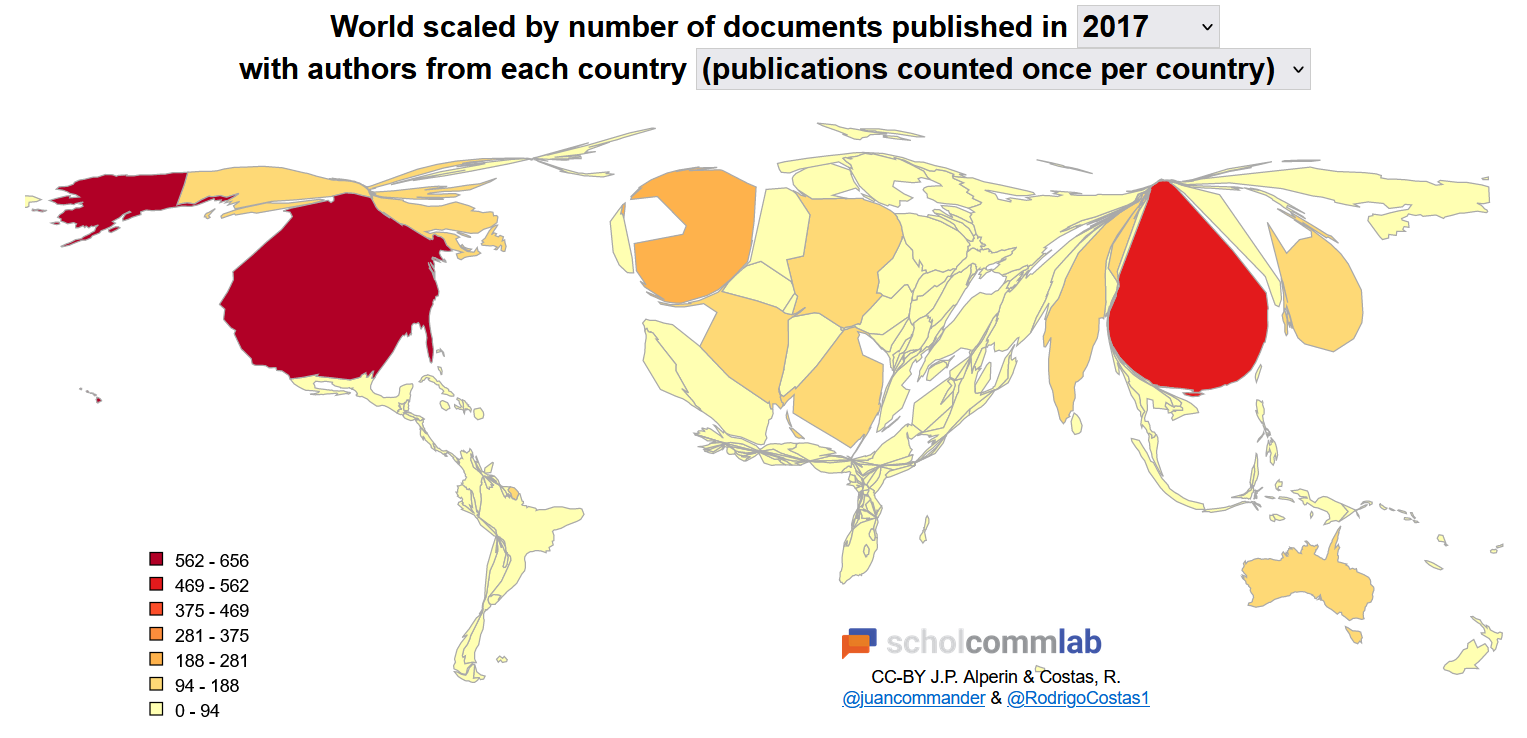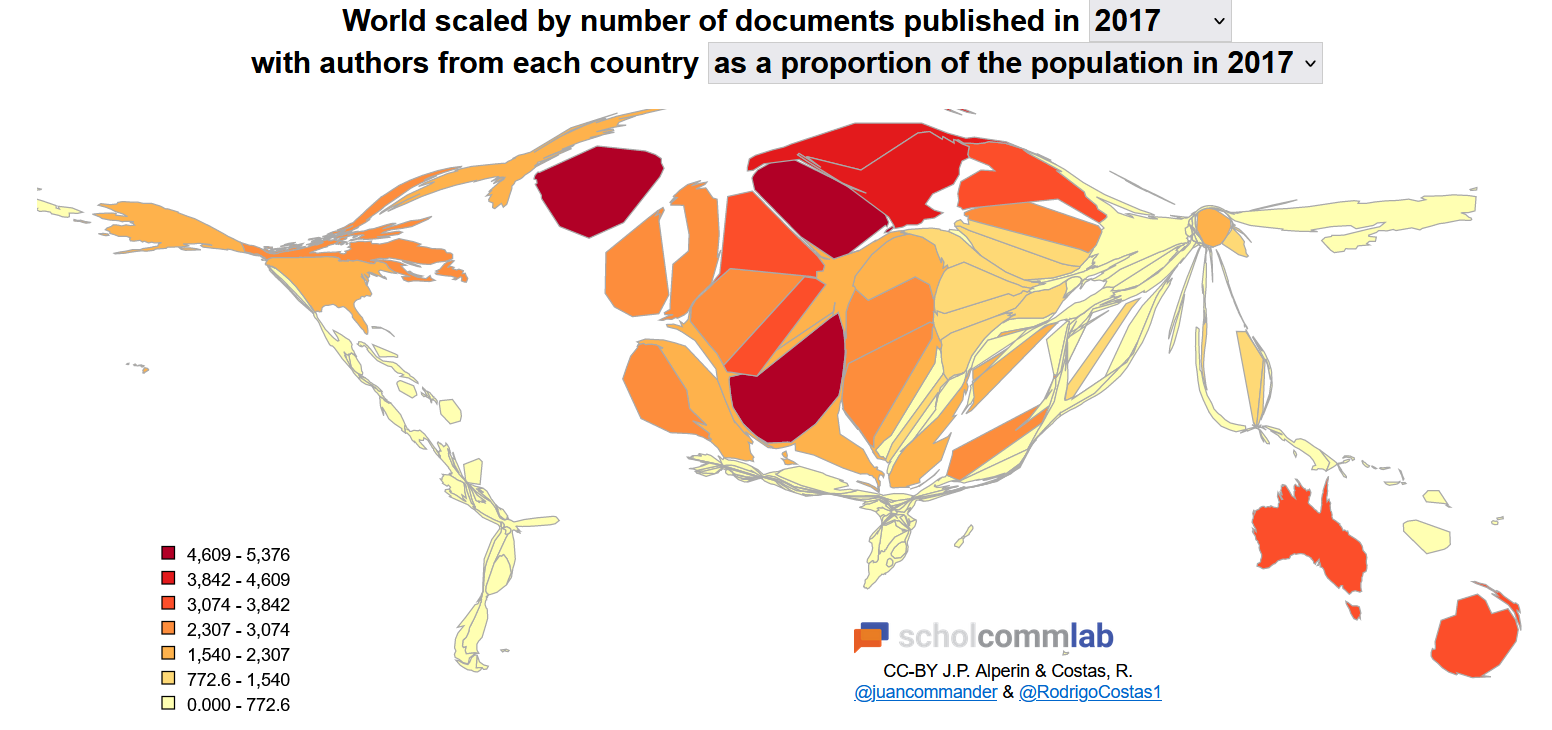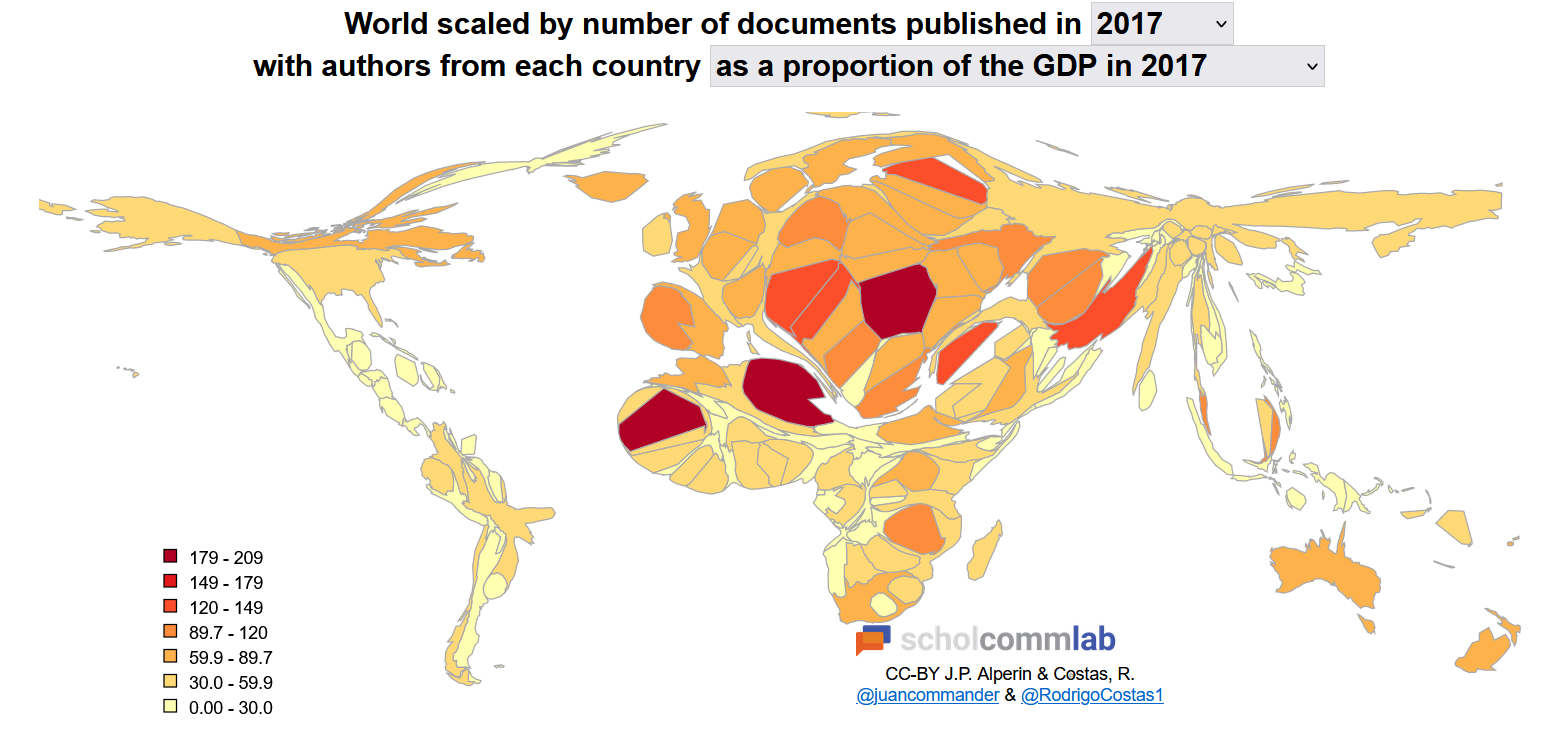About this course
Résumé de section
-
This course is part of a series of courses offered by the Coalition for Open Publishing of Public Health in Africa (COPPHA). The course initially ran from January to March, 2025, but is now available for self emrolment at any time.
Note: if you want to gain a certificate for completing this course, you will have to create an account and log in as a student.
We have discussed some of the problems of the current peer review system in the previous course on Peer reviewing. The problems are each bound up with the publication system for scientific papers. As we have discussed in the Open Science course, research publications from the Global South are low relative to the Global North
These graphs scale the apparent size of each country by the number of documents cited in the Web of Science. When raw numbers are examined by country, there are gross global differences (Figure 1). These differences are attenuated when the numbers are adjusted for the population size of each country, (Figure 2). However, it is not until the figures are adjusted for GDP (Figure 3), that African countries at last become visible in the map.



The patterns may underestimate the geographical disparities as the Web of Science has been criticised for being structurally biased ‘against research produced in non-Western countries, non-English language research, and research from the arts, humanities, and social sciences.’ Research on health journals published in 13 African countries found that most journals were not indexed. Other valuable research may not appear in journals biased against non-Global North sources. Article processing charges levied on the authors or their institutions are further barriers to publication.
This is a complex problem. There may be relatively less research performed in the Global South, there may be biases against research from the Global South getting published through the current publication system (bias in the peer review system, inability to pay Article Processing Charges). There may also be structural biases in the current publication system that need to be overcome to allow research to be published in a timely and accessible fashion – this is a global problem, but exacerbated for the Global South.
The way that published research is indexed (and hence found through search engines) adds to the problem - the term bibliometric coloniality has been coined to refer to: 'the system of domination of global academic publishing by bibliometric indexes based in the Global North, which serve as gatekeepers of academic relevance, credibility, and quality. These indexes are dominated by journals from Europe and North America. Due to bibliometric coloniality, scholarly platforms and academic research from the African continent and much of the Global South are largely invisible on the global stage.'
This course explores two possible solutions to help achieve visibility for research through innovative publication and review systems. We will explore open publishing and open reviewing systems.
There are a number of new approaches to the review process as well as to the way in which research may be published. There are now ways for researchers to put their research reports online for all to access before they are reviewed, these are called preprints. Peer review is sought for these preprints in a process of open review. The author(s) can then review the paper according to the review. The paper may now be, submitted for publication to a more traditional journal, or remain available for open access by anyone interested. This is an evolving field, and we discuss this later in the course.
Course learning outcomes. Be able to:
- Understand the benefits of open reviewing and open publishing,
- Demonstrate the ability to post a preprint and an open review
How to navigate the course
Each section comprises a set of resources that we think you will find interesting - click on the collections of resources in each section. There is a forum in each topic for reflection.
We encourage you to reflect on what you have learned or comment on the course. When you click on the blue hyperlink in each topic labelled reflection, you will be able to add a new topic or respond to a previous one. You may want to share your learning from this and other readings, comment on the topics from your own experience, comment on others' posts, or provide feedback on how we can improve the content and presentation.
In the final section you will see that you can gain a Certificate of Completion - the requirements for this are to access the resources, post a reflection in each section, and upload a preprint to the BAOBAB repository in the COPPHA commnuity.
This is a self-directed course, to be taken at your own pace. We encourage you to reflect on the issues, maybe make notes as you go along as this is a good way to be sure that you can internalise the information presented and the lessons to learn from it.

This work is licensed under a Creative Commons Attribution 4.0 International License.
